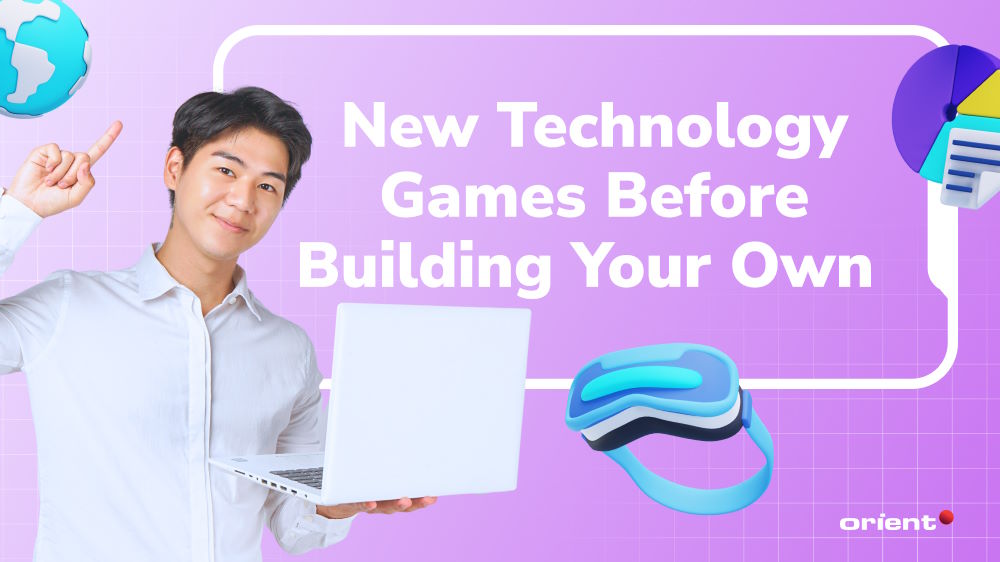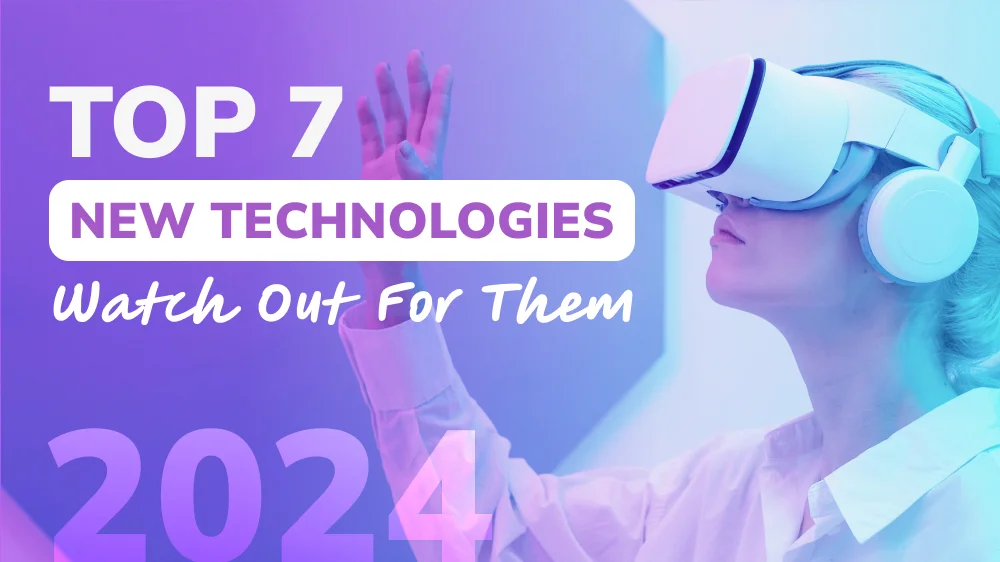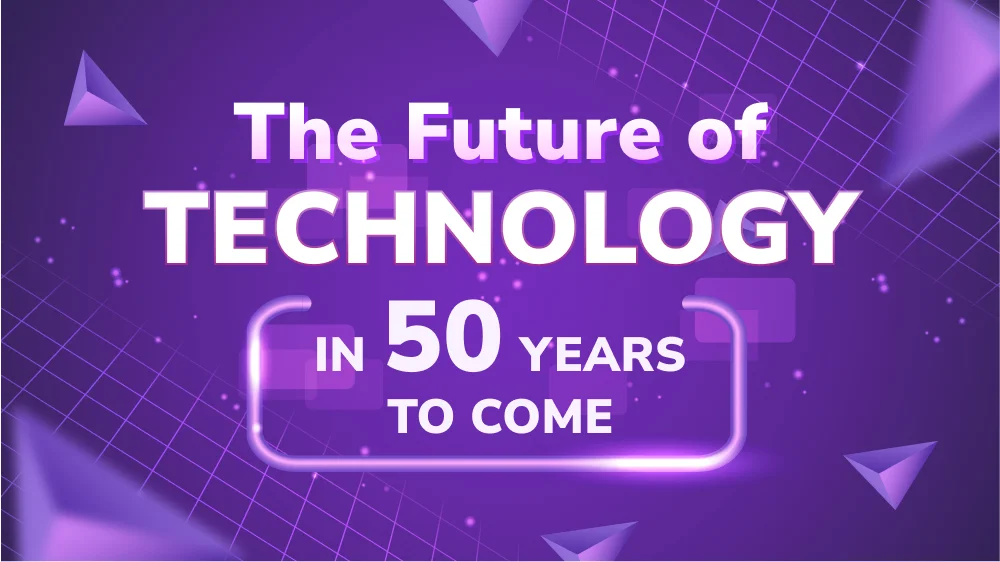What You Need to Know about New Technology Games Before Building Your Own

Content Map
More chaptersNew technology games are the latest craze in the gaming industry that has changed the way we used to play games. Game developers are the masterminds behind crafting immersive and interactive experiences for players, utilizing cutting-edge technologies and innovations in the process. Some examples of new technology games are virtual reality (VR), augmented reality (AR), cloud gaming, and artificial intelligence (AI) games. These games offer new ways of playing and learning that are different from traditional games.
However, before embarking on ambitious projects utilizing the latest advancements in areas like virtual and augmented reality games, AI, or cloud gaming, it’s important to fully understand the opportunities and challenges these new technologies present.
This article provides an overview of cutting-edge gaming technology trends that are transforming the industry and insights into successfully leveraging them. We’ll explore technical considerations, design approaches, potential hurdles, and best practices to keep in mind for innovative projects. Our goal is to help indie studios and smaller teams leverage the groundwork laid by innovators while avoiding common pitfalls through informed planning.
The Features of New Technology Games
The new technology features of the gaming world are the technical and creative aspects that make them different from traditional games. New technology games use advanced hardware, software, and platforms to create immersive and interactive experiences for players. Here are some of the features of new technology games that you should know.
Virtual Reality (VR)
Virtual reality games are ones specifically designed to be played within a virtual reality headset, like the Oculus Quest or Valve Index. They fully immerse players in simulated 3D worlds through stereoscopic graphics rendered in real time.
A key feature of VR games is the ability to translate player movements and actions directly into the virtual world. This is made possible through motion tracking of the headset and installed sensors that follow the player’s head, hand positions, and body movements. VR controllers with haptic feedback also help mimic realistic interactions.
Common VR game genres include first-person shooters, adventure games, flight/space simulators, and puzzle games. Popular titles take advantage of VR’s immersive properties by transporting players to new environments and giving them interactive superpowers. Examples include Beat Saber (rhythm sword slashing), Superhot VR (time manipulation), and Half-Life: Alyx (story-driven FPS).
Augmented Reality (AR)
Augmented reality (AR) games enhance the real world with computer-generated perceptual information, typically using a mobile device’s camera. In contrast to virtual reality, AR allows players to maintain awareness of their physical surroundings.
Pioneering AR games utilize marker tracking to identify patterns in the real environment. Players then interact virtually with digital objects registered to those markers. More recent AR technology leverages visual SLAM (simultaneous localization and mapping) to anchor objects without the need for markers.
Leading AR includes mobile games of popular franchises like Pokémon Go and Jurassic World Alive. They leverage GPS to locate virtual creatures and creatures in real-world locales. Other innovative AR titles include games that turn the player’s house into a virtual maze or battlefield.
Cloud Gaming
Cloud gaming services allow users to play console- and PC-quality games without requiring high-end hardware by streaming gameplay from remote data centers. While playing games, they run and render entirely in the cloud, with only inputs and video/audio being transmitted to any supported device. It has the ability to bring up an entirely new realm of online games and experiences.
As 5G networks advance, latency is improving to provide smooth responsiveness even for mobile gaming. This opens the door for a true on-the-go portable cloud gaming market without a dedicated device. New services like Xbox Cloud Gaming (xCloud) and NVIDIA GeForce Now have since expanded the market.
The benefits of cloud-based gaming include giving inexpensive devices like Chromebooks or phones access to unrestricted libraries. Users also always have the latest game versions, avoiding hefty downloads. Cross-platform play lets gamers freely shift sessions between screens at home or on the go.
Artificial Intelligence (AI)
AI games utilize artificial intelligence to power sophisticated, adaptive behaviors within game environments. From opponents to companions, AI is used to create interactive games and engaging experiences for players. The advances in processing power and machine learning capabilities of modern gaming consoles have enabled the development of more complex AI behaviors and adaptive systems within games.
Classic AI applications include tactical opponents in strategy and puzzle games that assess conditions to deliver challenging yet fair play. Modern machine learning allows for versatile and unpredictable robotic foes/allies in FPS, RPG, and other genres.
Embodied AI brings characters to life with autonomous movement, speech, problem-solving, and emotional responses. Titles like Cyberpunk 2077 feature believable NPCs that chat, gesture, and survive based on their personalized routines.
The Future of Gaming: Exciting Possibilities
As technology continues to advance at a rapid pace, the future of gaming holds exciting possibilities that will shape the way we play and experience games. From enhanced immersion to seamless integration across devices, the future of gaming is poised to revolutionize the industry. Let’s explore some of the upcoming trends and potential advancements that await us in the world of new technology games.
Advancements in Haptic Feedback, Motion Tracking, and Gesture Recognition
The future of gaming promises to deliver more immersive experiences through advancements in haptic feedback, motion tracking, and gesture recognition technologies. Haptic feedback technology will enable players to feel the impact of in-game actions through vibrations, allowing for a more tactile and realistic gaming experience.
Additionally, motion tracking and gesture recognition technologies will provide a new level of interactivity, allowing players to control games with their body movements and gestures. Imagine swinging a virtual sword or throwing a virtual object with precise accuracy simply by using natural motions and gestures.
Cross-platform Gaming and Seamless Integration across Devices
One of the most exciting developments in the future of gaming is the rise of cross-platform gaming and seamless integration across devices. Cross-platform gaming will allow players on different platforms, such as consoles, PCs, and mobile devices, to play together in the same game. This will break down barriers and create a more inclusive gaming community where friends can connect and play regardless of the devices they own.
Furthermore, seamless integration will enable players to start a game on one device and seamlessly continue it on another, providing a seamless and uninterrupted gaming experience. For example, you could begin a game on your console at home and continue playing on your smartphone during your commute without losing progress or sacrificing gameplay quality.
eSports and Competitive Gaming
eSports and competitive gaming have already made a significant impact on the gaming industry, but their influence is only set to grow in the future. As more players embrace the competitive aspect of playing online games, we can expect to see even larger-scale tournaments, increased prize pools, and a more professionalized eSports ecosystem.
The future of gaming will provide new avenues for aspiring professional gamers, with opportunities for sponsorships, team organizations, and streaming platforms. This will further elevate the recognition and popularity of eSports worldwide, solidifying it as a legitimate and respected form of competitive entertainment.
Advancements in VR and AR
Virtual reality and augmented reality have already made waves in the gaming industry, and their potential is poised to expand further in the future. Advances in VR technology will provide even more immersive experiences, with improved visuals, more realistic simulations, and enhanced comfort. Players can expect to explore virtual worlds with unprecedented levels of depth and realism, transporting them to new and captivating environments.
Augmented reality will also play a significant role, with games that seamlessly blend digital elements with the real world. Imagine battling virtual creatures in your living room or solving puzzles that appear on your tabletop, all thanks to augmented reality technology.
How to Leverage New Technology Games for Game Development

Game development is constantly evolving, and leveraging new technology games can provide valuable insights and inspiration for creating innovative and engaging experiences. Here are some key considerations for game developers looking to leverage new technology games in their own development process:
- Study Successful New Technology Games: Analyze and study successful new technology games that have pushed the boundaries of innovation. Examine how they have effectively incorporated new technologies into their gameplay mechanics, user interfaces, and overall game design. Identify the elements that resonate with players and consider how you can adapt or build upon those ideas in your own game development projects.
- Understand the Target Audience: Consider the target audience for your game and evaluate whether new technology games align with their interests and preferences. Conduct market research, gather feedback from potential players, and analyze demographic data to ensure that incorporating new technologies will enhance the gaming experience for your specific audience. Understanding your target audience’s expectations and desires is crucial for effectively leveraging new technologies.
- Experiment and Prototype: New technology games often involve uncharted territory, so embrace experimentation and prototyping. Start by exploring small-scale projects or proof-of-concept demos to test the viability and potential of integrating new technologies into your game development workflow. This iterative approach allows you to refine your ideas, identify challenges, and gain valuable insights before committing to a full-scale production.
- Collaborate with Experts: Building expertise in new technologies may require collaboration with specialists in the field. Consider partnering with experts in VR, AR, AI, or other relevant domains to leverage their knowledge and experience. Such collaborations can help you navigate technical challenges, optimize performance, and ensure that the integration of new technologies aligns with your game’s vision and goals.
- Embrace Future Possibilities: New technology games are just the beginning of a constantly evolving landscape. Embrace the future possibilities that emerging technologies offer for game development. Stay curious, be open to experimentation, and continue to explore new ideas and concepts. The gaming industry is dynamic, and by staying at the forefront of technological advancements, you can position yourself as an innovative game developer ready to create groundbreaking experiences.
Final Suggestion
While some technologies we discussed, like VR, AR, and cloud gaming, continue advancing, not everything mentioned is truly new for 2023. Some, like metaverses, are still in the early stages of development, so their future forms are difficult to predict accurately.
Regardless of the specific technologies adopted or those deemed most relevant, developers have flexibility. Even without incorporating the latest tech, independently produced games can succeed by delivering fresh, enjoyable experiences for players. A fun gaming concept remains popular irrespective of technological trends. Moreover, Orient Software is prepared to assist you in gaming programming languages.
In summary, established technologies will keep maturing, but predicting emerging ones is challenging. Developers are not obligated to use any particular tech either. Creating indie titles that prioritize enjoyable mechanics and novel concepts ensures relevance across shifting industry innovations. At its core, gaming is about enjoyment, which Orient Software stands ready to help developers cultivate.







